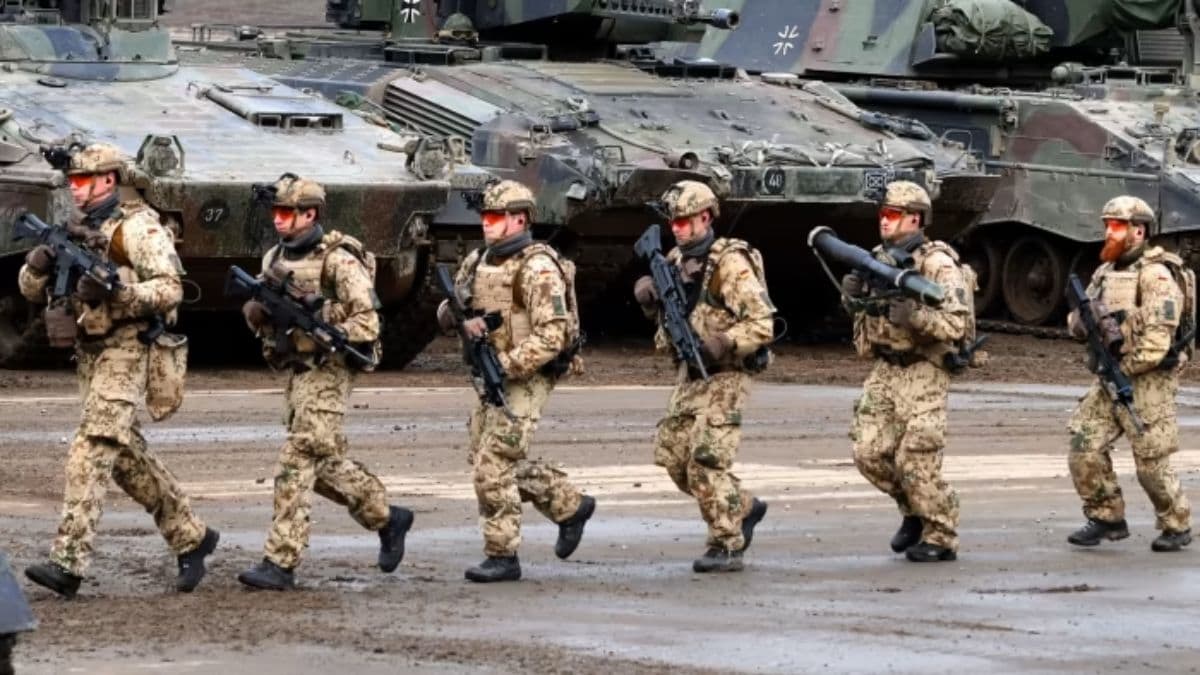German Chancellor Friedrich Merz wants his country to have the strongest military in Europe by 2031. But China’s near monopoly on rare earth minerals could derail such plans for rearmament and military modernisation.
German Chancellor Friedrich Merz wants his country to have the strongest military in Europe, but China’s near monopoly on rare earths could derail the plan.
Merz has built a war chest of €500 billion (584.35 bn) for the military modernisation, rearmament, and infrastructure development. But there are some things that even money and political will cannot buy, such as the 17 ‘rare earth’ minerals.
These minerals are not actually scarce but are called ‘rare’ because they are found with other minerals and are very difficult to mine and refine. China controls around 70 per cent of rare earths’ mining and around 90 per cent of rare earths’ production.
STORY CONTINUES BELOW THIS AD
Rare earths are needed in nearly every modern product from household devices like cell phones to cars and fighter planes and missiles. In recent years, China has used the near monopoly on rare earth supplies for leverage in international politics. It leveraged to bring Trump to his knees in the trade war.
Now, Merz’s ambitions for Germany, and Europe’s broader rearmament programme, is at the risk of being derailed.
Rare earths are a must for military
Rare earths are not just a must for automobiles and communication devices but are required in almost every modern weapon and military system.
For example, F-35 fighter planes need anywhere between 418–920 kilograms of multiple rare earths, such as neodymium, praseodymium, yttrium, gadolinium, and cerium, which are used in radar, stealth coatings, and various sensors, and glasses.
Similarly, Eurofighter Typhoon uses hundreds of kgs of rare earths in total, such as neodymium and samarium for actuators; yttrium and gadolinium for avionics and radars, and praseodymium and lanthanum for engine or turbine alloys and sensors.
Here is a not-so-exhaustive list of rare earths and their applications in military systems:
Rare earths’ applications in military systems.
Germany has already placed orders for thousands of military vehicles, missiles, and ammunitions, and defence firms have revved up their production lines. But all of it come to a grinding halt if China would tomorrow decide to stop rare earth supplies. But the limitation is not limited to just rare earths.
The European Union (EU) imports as much as 95 per cent of its strategic raw materials, and relies on non-EU countries for 90 per cent of such imports, the Federation of German Industries (BDI) told Politico.
See the chart below to understand China’s domination in global rare earth supplies.
China’s place among world’s rare earths’ suppliers.
Beyond rare earths, China controls around half of the world’s supply of ‘critical minerals’.
STORY CONTINUES BELOW THIS AD
Among such minerals, the BDI told Politico that tungsten, graphite, titanium, and high-purity magnesium, are the backbone of high-end military systems, which are used in radars, electric motors, missile guidance fins, thermal sights, and drone propulsion, and most of these minerals come from China.
If China-sourced materials suddenly fall away, that could stop Germany’s defense industrial plans in their tracks, Jakob Kullik, a researcher at Chemnitz University of Technology and an expert on rare earth policy, told Politico.
